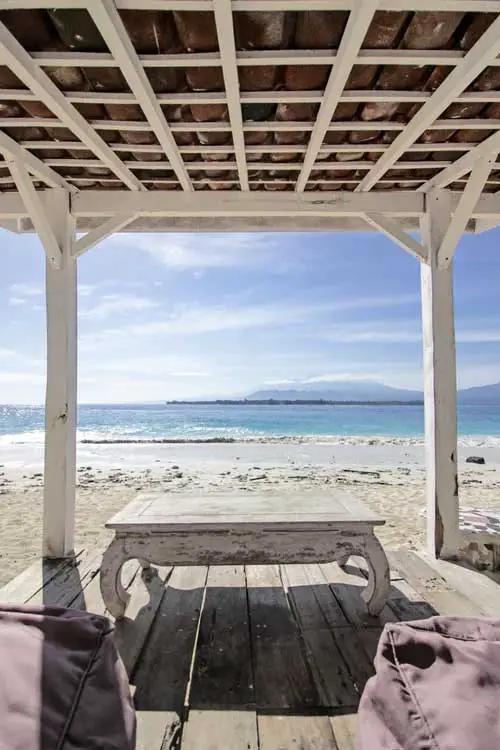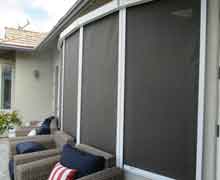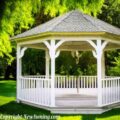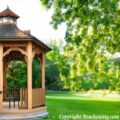Last Updated:June 21, 2025
27 Tips For Selling at Farmer Market (including products and tent guide)

Do you want to sell at a farmers market, but don’t know where to start? We’ve spoken to 10 sellers and researched more than 50 popup tents to help you make the most money.
This guide will start from scratch, and teach you everything to setting up a profitable side business at the markets. These tips can be used at other outdoor markets, but we’re mainly focused on farmers markets where the customers are focused on food items.
Also, we’d love to get a picture of you at farmers market booth so feel free to tweet us . We love hearing from our readers, and this is a great chance to share your shop. We’ll like all the pics we’re tagged in so it’s a great way to get a little extra attention and start building your followers.
In a hurry?
If you don’t have much time, you can use the links below to quickly find the best tent for farmers market for you on Amazon. You can be assured that we’ve spent hours researching the top Pop-up Tent…
– Best Farmers market Tent ABC Canopy Pop-up Tent
– Best budget Tailgating Tent Snail Commercial Tent
What’s the best tent for a farmers market?
We researched 27 different tents, and the table below shows our pick for best tent for farmers markets.
Title
Coleman Instant Tent
Eurmax Canopy Tent
Phi Villa 10x10 Tailgate Tent
Snail Outdoor Tent
Frame
Steel
Powder Coated Steel
Powder Covered Steel
Aluminum
Shade Material
Polyguard
Polyester
Fabric
Polyester
Size(s)
10' x 10'
10x10
10x10
10x10 or 10x20
Leg Weights Included?
Colors Available
1
26
1 (Blue)
13
Sides Included?
Weight
37
70
34.4
40
Price
$275.00
$249.86
$109.99
Buy Now
Title
Coleman Instant Tent
Frame
Steel
Shade Material
Polyguard
Size(s)
10' x 10'
Leg Weights Included?
Colors Available
1
Sides Included?
Weight
37
Price
$275.00
Title
Eurmax Canopy Tent
Frame
Powder Coated Steel
Shade Material
Polyester
Size(s)
10x10
Leg Weights Included?
Colors Available
26
Sides Included?
Weight
70
Price
$249.86
Title
Phi Villa 10x10 Tailgate Tent
Frame
Powder Covered Steel
Shade Material
Fabric
Size(s)
10x10
Leg Weights Included?
Colors Available
1 (Blue)
Sides Included?
Weight
34.4
Price
$109.99
Do I need a license to sell at a farmers market?
In most areas no, but you can check with the people who run the market. They should have the information for you to setup as most farmers markets are very beginner friendly as many small businesses are launched there.
How successful are vendors at sellers markets?
We spoke to several sellers who will gross more than $1000 on a busy day. As we live in Arizona, our markets are open year around, and there’s a lot more traffic in the winter when the temperatures are cooler. Most vendors with a good product will earn a couple hundred per day.
How much does it cost to setup a booth space?
The space for your tent will be between $20-50 depending on the location and time of year. Some offer a seasonal pass with a discount, but we don’t suggest that until you’ve found a winning product and you’re showing up every week.
Are tables and tents included?
Nope. You are renting a 10’x10′ space where you can setup tables, a tent, or part a food cart. Nothing is included.
How do I accept credit cards?
We recommend setting up an account with Square as they have an app and a tool that plugs into an iphone or android.
Is it ok just to accept cash?
No. This is almost a show stopper as so many people no longer carry cash. Not accepting credit cards will cut your earnings in half.
Do I have to use a commercial kitchen?
In most cases no, but you will want to check your individual area. The operators of the market should be able to tell of you of any restrictions like this.
Is it a good idea to give away free samples?
Absolutely! Customers know exactly what to expect if they are buying Oreos or M&Ms. If you are going to sell any prepared item, you need to offer a taste. People won’t risk spending the money on your item if they’re not sure they’ll like it.
What are the best items to sell?
Produce, meat and eggs are difficult to sell at the markets with any sort of profit margin. Professional farms will have established relationships with vendors and many of the vendors you see at the market will simply be middlemen.We spoke with one honey vendor who runs booths at 20 different farmers markets, and the amazing thing is that she doesn’t even own any bees. She has a reliationship with the aviaries and purchases their honey to sell throughout her area. When you’re starting out, it’s best to pick an item that you can create yourself. Some of the best items we’ve seen are:
- Fresh Specialty Bread (ie Sourdough, Gluten-free..)
- Specialty Treats (Sugar-free, vegan, lactose-free)
- Peanut butter
- Salsa
What are farmers market tent size?
Tents are normally 10′ x 10′. This is standard across most of the US.
How much does a farmer market tent weigh?
Tents can weigh between 35 pounds with aluminum frames and 60 pounds for steel frames. Most will come in a carry case with wheels to be rolled to your spot.
Can you rent a tent for a farmers market?
No, but you can rent tents at a party rental company. We don’t advice it. The cost of renting a tent is going to be $75 for the day whereas you can buy a tent for $100. If you’re on a budget, you’d be better off buying a used tent from Craigslist rather than renting the tent.
Does the canopy have to be white or can it be a color?
Most markets are OK with any color. The advantage of white is that it will be acceptable everywhere. The advantage of a colored tent is that you can stand out making it easier for customers to find you. It can also be part of your brand. For example, we know our favorite cookie vendor has a dark red tent so we always look for that while browsing.
Can you get custom tents?
Yes, I have several vendors who do this full time get custom tents with logos. The honey vendor I mentioned above has custom tents, and she is building up a brand. Because she has a precence at so many of the different markets, we know what to expect whenever we see her booth. For most vendors this isn’t something they will ever need to consider.
What’s the best metal for the tent frame?
We prefer a steel frame. The steel can either be stainless, galvenized or powder coated. The quality goes up in that order with powder coated steel lasting decades. Aluminum is an option for some people because it costs less, and it weighs less making it easier to tansport. If you go with an aluminum tent, you will want to be careful with the leg weights to limit the chance of the tent flipping.
Why do so many people use white tents?
White tents look clean and professional. They are accepted at all markets.
How do you add a logo to your tent?
This isn’t something you’ll want to do at first. It’s far better to get a sign to hang from the rafter that you can take down when you fold up the tent. If you want a logo on the tent, you’ll need to get a custom shade, and have it attached to the frame. This can cost hundreds of dollars, and we don’t consider it a good investment for beginners.
How do I stop tent from flipping?
You can either use sandbads or weight plates. We prefer the plates as customers are less likely to trip over them. Our favorite weight plate is available on Amazon for less than $20.
Is the shade waterproof?
Yes, all the tents are going to be water resistant. This means that you’re product will stay dry even on the rainiest of days.
Should I get sides for the tent?
Our preference is no. The vendors that we spoke with wanted all sides of their tent open so that people walking by would have the most chance to see their product.
Our research process
Our team of editors reviews more than 100 products for each of our guides. We only consider items that have stood the test of time. We want them to be produced by companies who have been in business for years.
We see a lot of manufacturers take a short-sited approach by making low quality products, and then just launching the same garbage under a different brand once the customer reviews start coming in. Because we only recommend established companies, we can eliminate many of these risks.
We also look for products that have an active support community, and that meet the residential building codes for most states. Some states like Florida and California have more restrictive building guidelines so going with products that meet those standards mean that should work in most other parts of the country.
Finally, we also look at the technical elements of the products. Our site was established in 2012, and we’ve built up an expertise in the shade and awning space. We know the weights of fabric, the types of metal frame, and understand how to evaluate the gears. We’ve also written extensively on awning repair and maintenance so we can speak to the life expectancy.
After several years in business, we expanded to other products in the patio and backyard space. We live in Arizona, and we’re able to spend most of the year outside.
Finally, if you have any questions, feel free to send us a message on our contact form.









